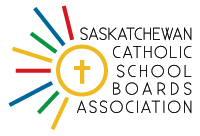Introduction
The purpose of permeation is to make our faith part of every lesson we teach. It is the sharing of our core religious values with our students. We look for authentic ways to share our faith.
Permeating Faith Through Connections to Religion Class
Faith permeation can include making connections between current Religious Education programming and other subject areas. The Growing in Faith, Growing in Christ program is divided into five units over the course of the year, corresponding to the seasons of the Liturgical Year.
- Unit 1 – Ordinary Time (September – November)
- Unit 2 – Advent and Christmas (December – early January)
- Unit 3 – Ordinary Time (January – February)
- End of unit depends on when Lent begins
- Unit 4 – Lent and Easter (approximately mid-February through late March)
- Start and end date depend on when Lent begins and Easter is celebrated
- Unit 5 – Easter Season and Ordinary Time (April – June)
- Start date depends on when Easter is celebrated
Use this resource to infuse Catholic faith in all subject areas. This resource provides ideas for Catholic faith permeation in the grade one classroom environment.

Grade 7 Religion Outcomes
This short summary outlines what students will be learning in Religious Education programming over the course of the year.
- Unit 1 – Preparing for God’s Kingdom
This unit begins during the liturgical season of Ordinary Time, a season of growth for the Catholic Church. During this unit, students will explore the Sermon on the Mount from Matthew’s Gospel in depth, examining it through the lens of solidarity and social justice. They will examine the four-fold structure and content, concentrating on the Beatitudes and the Lord’s Prayer as Jesus taught it. Students will come to understand that the Sermon on the Mount and the Lord’s Prayer are at the centre of the Gospels and summarize the teachings of Christ. - Unit 2 – Bringing Christ into the World
This unit celebrates the beginning of a new liturgical year with the seasons of Advent and Christmas, extending to the Solemnity of Epiphany. In this unit, students will explore the life of Mary and the saints as preparation for the coming of Christ at Christmas and as the Saviour of the world. Students will explore the many devotions to Mary and how these prayers and celebrations lead us in a meaningful way to her Son, Jesus. They will learn that Mary’s witness has inspired heroic virtue in recognized saints throughout the centuries, and that, in turn, these saints inspire us to reach out in compassion and mercy to those around us. - Unit 3 – Sacramental Grace for a Life of ServiceThis unit marks the beginning of the calendar year and the beginning of Ordinary Time in the liturgical calendar. In this unit, students will develop a better understanding of their role as baptized members of the Church in continuing Jesus’ mission on Earth. They will examine the concept of vocation and God’s call through an in-depth look at the sacraments of Confirmation, Holy Orders, and Marriage, and the prayers, symbols, and ritual actions associated with each. They will also come to understand the moral basis for the sacrament of Marriage by exploring Bible stories, Church teachings, and the lives of Sts. Louis and Zélie Martin.
- Unit 4 – God’s Plan of Salvation
This unit focuses on key themes of Lent and Easter and explores the key roles of the three persons of the Trinity. Students will examine scripture passages associated with the passion and death of Jesus to set a tone for repentance and reconciliation. The main focus of this unit will be the four stages of salvation history: from creation, the law, and patriarchs and prophets, to the life, death, resurrection, and ascension of Christ, and then to the work of the Holy Spirit in the Apostles and Church, which continues until the end of the age. Students will learn how these stages have chronicled God’s continuous love for His people and His call to return to Him. - Unit 5 – Acting in Virtue and Solidarity
This unit begins after Easter and continues through Ordinary Time. In this unit, students will explore the theological and cardinal virtues and learn how practising good habits can help them lead virtuous lives. They will explore God’s natural moral law and how a well-formed conscience can assist in decision making, particularly in challenging situations. Students will further explore Catholic social teaching and how we can live lives of solidarity with our brothers and sisters in our own community and around the world to promote charity and justice.
Full Resource Available
With outcomes, ideas, lesson plans and more for grade seven.

